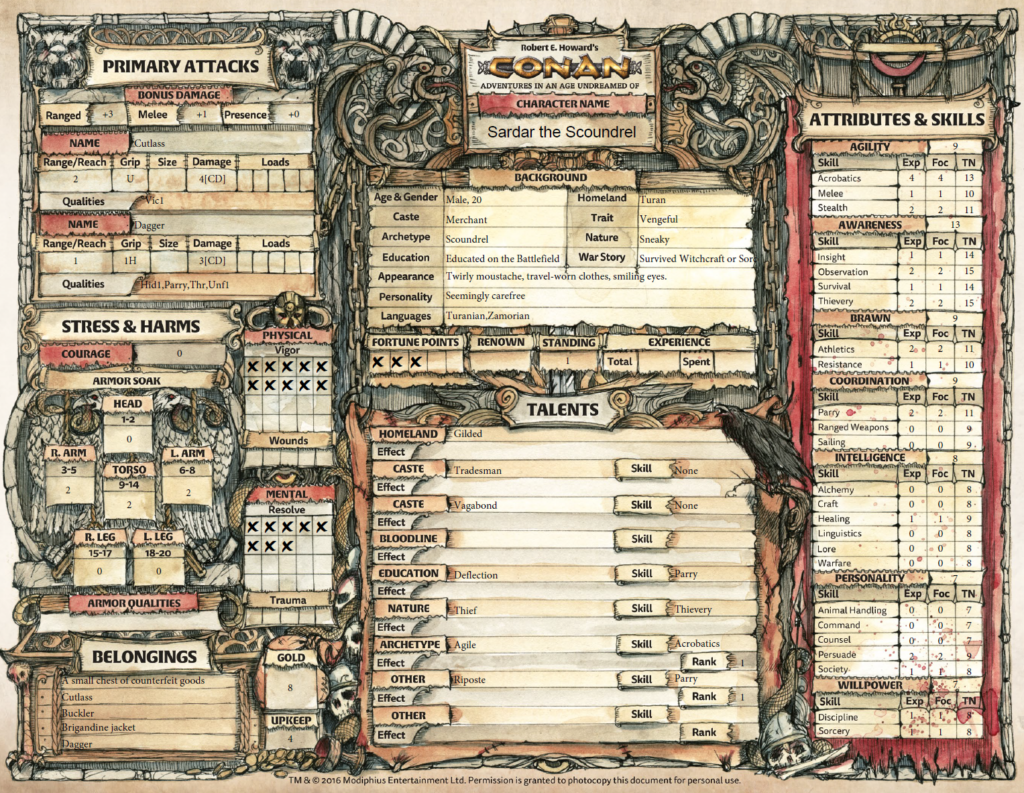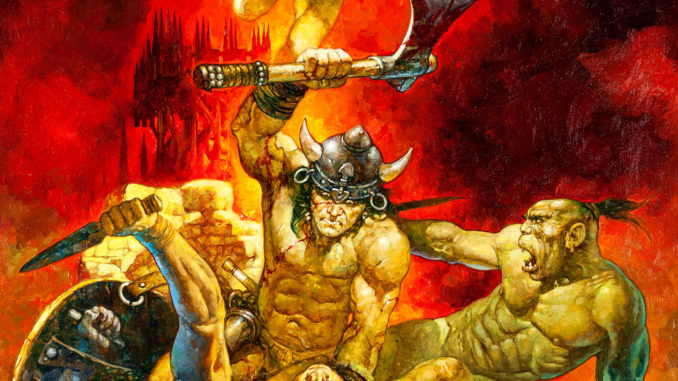
Character creation
Following the mechanics summary of the previous article (Part 1) that hopefully provided some basic insight and understanding of how the core dice mechanic works, I present here a walk-through of the character creation process. The way it is presented and the number of steps may seem daunting and fiddly, but as with most systems, making a few test characters speeds up the process considerably.
“Maddened at the disappearance of his sweetheart, the barbarian reverted to type.”
– Slithering Shadows / Xuthal of the Dusk (1933).
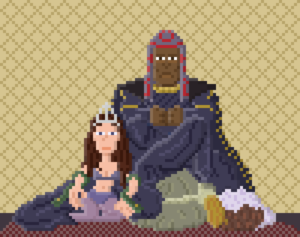
Character creation is done in 10 steps, and can be both randomised (by rolling 9d20) or by selection. The steps are:
1. Homeland
2. Attributes
3. Caste
4. Story
5. Archetype
6. Nature
7. Education
8. War Story
9. Finishing touches
10. Final calculations
Steps 1, 3, 5, 6, 7, 8, and 9 all provide talents and/or skill increases. Step 2 generates or lets you choose your attribute distribution and focus. Step 4 provides you with a character trait that the player can evoke in play to regain Fortune points (the good stuff!). This trait is linked to your Caste (determined in step 3). Step 10 is basic arithmetic putting it all together. There’s a character creation tool in the making here. It even allows you to export a PDF now.
From the very get go, you can be from any human homeland (you’ve got about 30 to choose from) – except you can’t be a Pict. Which kind of makes sense, if you’ve read any Conan. Your homeland provides you with a language and a talent.
For my character I pick Turan as my Homeland, hailing from a small nameless fishing village by the Vilayet Sea in the east, not too far from Aghrapur, a day or day and half’s march perhaps. I call my character Sardar, he speaks Turanian and receives the homeland talent Gilded. This talent allows Sardar appraise his surroundings once per scene to get a general feel for the wealth of a NPC or room.
All attributes start at 7 (or 6 if you want to play something lesser than a hero). You may adjust up to 2 of these down by 1, and increase up to 2 attributes correspondingly. Then you “generate” your attributes. Attributes are generated by rolling or picking two Aspects that comes with a combination of 4 of the game’s attributes: Agility, Awareness, Brawn, Coordination, Intelligence, Personality and Willpower. They are grouped either as mandatory or optional. From the mandatory attributes two attributes increase by 2, one that is designated as “best” increases by 3, and one “worst” is increased by 1. Then you pick one of the optional attributes from each aspect and increase them by 1. The aspects have names like dexterous, wise and friendly, warrior-born, eagle-eyed and so on. They are ideal type descriptions of qualities your character is likely to exhibit, a nice touch when thinking of who your character is and how he or she is perceived and perceives him or herself, so even the choice of attributes is not just a choice of what he or she can do and how well. For the min-maxers out there: the game allows you to pick the same aspect twice, allowing quite an increase to just one stat. In case you want to be that one-trick pony. Conan never was.
Sardar grew up along the coast, and due to frequent piracy he helped his father as a look out from the high cliffs along the coast. I choose not to adjust any of his starting attributes, so they all start at 7. I pick Eagle-Eyed as Sardar’s first aspect due to him growing up as his father’s lookout. In his childhood his mother instilled in him an irrational fear of water and being stolen by pirates if caught at sea. This has abated over the years, yet Sardar has no love of the sea. Instead he helped with trade, logistics and transportation of their wares. Helping out his family was physically demanding work, and running to the local militia to warn against raids developed speed and endurance. I pick Fast and Fit as Sardar’s second aspect. This means that Sardar’s mandatory attributes are: Awareness, Coordination, Agility and Brawn. I choose Awareness as his “best” attribute and Coordination as his “worst.” This means that the mandatory stat line looks like this: Awareness 10, Coordination 8, Agility and Brawn at 9. Sardar’s optional attributes are: Intelligence and Personality, and Coordination and Awareness. From the first pair I choose Intelligence; he’s smarter than his manners. I don’t see Sardar being very much of a people person by nature, and he needs to be smart as well as observant when on the lookout for pirates. Intelligence is increased to 8. From the second pair I choose Awareness, pushing it to 11. Sardar will hopefully end up with an almost supernatural awareness.
So, to reiterate, Sardar’s stat-line: Agility 9, Awareness 11, Brawn 9, Coordination 8, Intelligence 8, Personality 7 and Willpower 7. He’s eagle-eyed and fast and fit.
“Conan’s hand fell heavily on her naked shoulder. “Stand aside, girl,” he mumbled. “Now is the feasting of swords.”
– Slithering Shadows / Xuthal of the Dusk (1933).
You have 9 Castes to choose from, twhich provide two talents, a skill bonus to one skill, and a section of stories from which you roll for or pick one in step 4. Each Caste has 6 stories. This is a neat little part of the creation game, as it provides you with a short blurb in the spirit of the Hyborian world and genre. It asks at least one question for you to answer and consider about your background. This is perhaps my favourite part here, you can of course easily make your own, but these pre-made stories gives you insight into your character if you haven’t fleshed out everything before you start, yet it’s not so all-encompassing that it determines the entirety of the course and story of your character. The role of the story should be central, but it doesn’t have to be the most important facet of your character’s background, yet it should be a defining experience.
Choosing Caste I have some alternatives. I’m looking at Farmer and Merchant. Neither is the same as a fisherman, but they are close matches. In one you farm the sea, so to speak; the other makes sense when trying to sell the harvest (catch). I settle upon Merchant, as Sardar rarely if ever joined his father on his boat. Sardar assisted his family by keeping an eye on their wares and lookout for thieves when going to the market with his mother or other family, to sell fish and buy what else they needed. Trade was good in Sardar’s childhood. This gives Sardar the Tradesman and Vagabond talents, as well as a +1/+1 to the Persuade skill (the two different bonuses to Focus and Expertise are tracked separately). The Tradesman talent allows Sardar to cover his Upkeep when Carousing through some kind of trade or guild work. The Vagabond talent reduces Survival difficulties when travelling on roads – not a perfect fit, but useful enough. His Social Standing is now 1.
For Sardar’s story I choose Ruin, and adapt it. Sardar’s family and the other families in his village lived well from the bounties. The Vilayet Sea rewarded their hard work. The small village in the shadow of Aghrapur was noticed by the rich city-dwelling merchants, and Sardar’s father was eventually invited to a lavish banquet intended to secure the future of the village and his family. Over the course of that one evening Sardar’s father ended up inadvertently insulting one of the city officials, the host. The proud official set out to destroy Sardar’s family name, and he succeeded. His family’s property, fishing boats, and hard earned access to Aghrapur’s better markets were confiscated or redistributed to other merchants and families, thieves stole what goods remained from trade, eventually the house and warehouses were burned down by bandits – with most of his family inside. Sardar fled and vowed revenge upon the city official, intending to destroy his political and social life first, and take his life later. Sardar decided to take with him what remained of deeds and property.
The caste and story gives Sardar the Vengeful trait. In-game I may evoke this in a situation, most likely causing a scene unwanted by my fellow companions, that will provide Sardar with a Fortune point, and a Complication. This evocation of Sardar’s trait should inform and affect the narrative and session plot in a constructive and exciting manner.
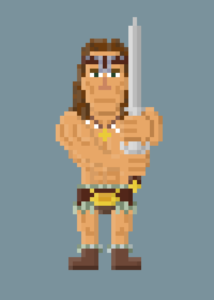
The Archetypes are your basic classes, or professions, or careers, or whatever your favourite game calls it. Yet, considering that this game is level-less and improvement is based on accruing XP to be spent on skills, talents and attributes, the Archetypes are more about starting fluff, gear, skills, talents and style, than a determination of abilities and what routes you may or have to go. That being said, the list contains 10 archetypes, from Archer and Barbarian (but of course!) to Priest and Shaman. The archetypes provides you with a “career skill” and “career talent”; this designation may matter in some of the following steps in the creation process, depending on your choices, but have little significance – as I understand it – after character creation. It provides you with some mandatory skill increases, and some elective ones. The archetype also provides you with equipment, armour, weapon and gear. Some also provide membership in organisations and more. They all have a nice little blurb about the type of character the archetype fits with, or is.
For archetype I choose Scoundrel. I also considered Pirate, but remembering Sardar’s role in his family and his story, Scoundrel is the better fit. Sardar went inland, not out on the waters. This gives Sardar a +2/+2 career bonus to Acrobatics, the Agile talent, +1/+1 to Athletics, Parry, Persuade and Society, and from the elective skill list I choose to add +1/+1 to Stealth and Thievery. Sardar is fast, agile and stealthy, so he gets away easily, but he’s not much of a fighter. Sardar gets one free weapon and shield from his archetype, I give him a Cutlass and a Buckler. I also choose the brigandine jacket, it provides better soak than the heavy clothing, even if it covers fewer hit locations. Lastly the small chest of counterfeit goods, I change (with GM approval) to be Sardar’s (growing) collection of implicating and career destroying evidence and artifacts that he intends to use against the city official that destroyed his family.
The Nature step provides an attribute increase, some more skills, and a talent related to one of these skills. There are 10 to choose from or roll for. Nature should first and foremost be chosen on the basis of how you see your character act and react. It’s a roleplaying opportunity that you write down on your character sheet. This, like many of the steps, may of course be customised and tailored to suit your needs, just remember to ask your GM first if you want to change stuff around.
Sardar’s Nature is Sneaky. Due to his upbringing, the fate of his family, and his choice not only to leave, but with the intent of preparing vengeance, I could go with Scheming too, but I feel Sneaky best represents Sardar’s approach to problem solution, both as lookout for his father and his family while at the market. This boosts his Awareness by +1 (now 12); he adds +1/+1 to Observation, Stealth and Thievery, and I add +1/+1 to Acrobatics and Athletics. For talent I choose Thief – on his travels to places like Shadizar and Zamora, Sardar has been socialising with and frequenting establishments of lesser repute, learning the speech, and picking up the trade.
“Barbarism has its vices, its sophistries, no less than civilization. Your cynicisms and sophistications are weak and childish beside the elemental cynicism, the vital sophistication of what you call savagery.”
– The Thunder Rider (c 1936, published 1972)
Education is yet another step to add skills and talents, and some types of education also provide your character with some equipment. There are 10 different types of education to roll for or choose from. Education also tells you something about your character’s background. Whether you were trained by an elder mentor, on your own terms, on the battlefield, apprenticing abroad or defying the wishes of your parents in choice of education, they all give you an idea about the earlier life choices of your character. This can make it that much easier to figure out how to play your character or approach the roleplaying, the world, and the people you meet in-game.
After his family was ruined, Sardar traveled with a group of ne’er-do-wells and for a short while turned to highway robbery. This resulted in being hunted and he had to fight local militias and even real soldiers, not to forget the city official’s lackeys hunting Sardar. On his way fleeing north and west Sardar also witnessed, was caught up in and for a short while joined a mercenary army, participating in a few short and bloody battles between armies of the Zamoran city-states. Therefore I choose Educated on the Battlefield as Sardar’s education. This gives a +1/+1 mandatory bonus to Acrobatics, Healing and Survival, and I elect a +1/+1 to be added to Melee and Parry. Sardar is somewhat trained at whacking, but is better at getting out of harm’s way, than harming others. To represent this Sardar also gets the Deflection talent. I also give him a dagger and he receives a battlefield honour from having assassinated an enemy commander – a story to be expanded upon during play perhaps?
War stories are central to the life experience of heroes in a sword and sorcery genre, especially in a setting as violent and full of evil as the Hyborian world. War stories provide characters with a skill bonus to two skills, but the details of the war story the player must make up him- or herself. The war story provides an inspiring theme or topic, like having defeated a savage beast or survived a massacre, but the details are for the player to make, in-game, before start or during play. This is a great opportunity for players to roleplay and tell their stories either as part of their introduction, during travels or when resting after a battle. The Hyborian world is so full of strife and conflict, that any travelling character has at least once been waylaid by bandits, attacked by monstrous beasts or caught between battling armies.
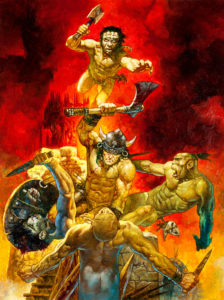
On his way to Zamora, Sardar deserted the mercenary army he had joined up with, as pay decreased and danger increased. On his way fleeing through a canyon, in the middle of a moonless night, Sardar was beset upon by a Horror of the Outer Darkness. He saw visions of his dead family reaching for him, the city official standing over him laughing, holding the entire village in a miniature bird cage in the palm of his hand. Bewildered and confused, Sardar managed somehow to escape the attention and wrestle free from the Horror’s nightmarish visions… the screams of the mercenary soldiers chasing him still haunt him to this day. Sardar wonders how he managed to survive such dark sorcery. This experience gives Sardar +1/+1 to Discipline and Sorcery.
The last two steps adds some more options for skills and attributes, and then calculates the derived statistics like Vigor and Resolve. I would recommend the character creation tool linked to above for having a look-see at how it works. It may seem fiddly, but it runs really smoothly once you’ve gotten the hang of it.
I increase Sardar’s Awareness and Coordination by 1 each, so now Awareness is at 13 and Coordination is at 9. The 13 in Awarenss immediately gives Sardar the Ancient Bloodline talent. This adds a nice touch to social interaction, Sardar’s heritage, and a Doom inducing boost to failed Personality checks. It touches on the ancient feuds between the Hyborian races, and is expanded in the various sourcebooks to specific homelands – Turan has not appeared in such a sourcebook yet. Sardar has hard eyes and a prideful ancient heritage that sometimes helps him, and sometimes makes his life harder when interacting with others. For rounding off his skills, I add +1/+1 to Insight, Observation and Resistance. For Sardar’s last talent I choose Riposte, from the Parry skill. For his one additional language I choose Zamoran. I choose not to permanently sacrifice a Fortune point for a one-time bonus to an attribute or skill.
Sardar has some solid, well-crafted armbands made from silver, a gift from his uncle. When not dressed for combat, he usually wears a patched and practical gambeson and carries a small, but heavy knife. And that’s it. What remains now is putting it all on a character sheet, add up the derived stats and figure out damage bonuses.
Derived stats, basically Vigor and Resolve, are totalled by adding Brawn and Expertise in Resistance, and Willpower and Expertise in Discipline respectively. Starting gold equals the sum of the character’s Personality and Expertise in Society. So, Sardar will have 10 Vigor, 8 Resolve, and 8 starting gold. Damage bonuses come in three different types: melee; ranged; and presence. These are based on brawn, awareness and personality. For Sardar this means his melee damage bonus will be +1 [CD]1, his ranged damage bonus will be +3 [CD], and threat or presence attacks will have a damage bonus of +0 [CD]. Upkeep is determined by adding social standing to 3 – and Renown enters into this during play. So Sardar’s Upkeep is 4.
Here you can look at Sardar’s character sheet here.
Sardar was generated using the online character generator linked to above (and here) – it is still a work in progress, hence the absence of the Ancient Bloodlines talent on the image of the character sheet. While the generator can export PDFs, you can also download a form-fillable PDF downloadable from Modiphius, I recommend this for customisation (ultimately I prefer to fill out by hand). You can download a PDF of Sardar’s character sheet here.
The basic assumption for making a character is to create a larger-than-life hero, like Conan and his companions. If you feel like running a game with «lesser» characters, there’s an option to limit the potential of the characters, preventing them from gaining the ancient blood line talent and basically making weaker characters.
To me the character creation process is a story-making process all by itself, as I hopefully have given an impression of above. I think perhaps it is somewhat more codified than other games, as it ties mechanics and fluff together in several steps, rather than having one attribute step, one skill step, and so on. This gives incentive for players to follow the hints, tips and suggested flavour texts, to create (a part of) the character’s story, but not its entire or the most important story – which is yet to be told, through playing. Yet, these smaller and formative stories allows the player to get to know and decide who his or her character is, what he or she cares about, why he or she is joining up with the other players, motivation, character traits, etcetera.
Hopefully this article provides some help and insight into creating your own 2d20 Conan character. The next article will cover combat, in almost all it’s bloody entrails streaming glory.
1 These are six sided combat dice.
Lagre

